Get Genrefied: Historical Fantasy
I love talking about genre fiction, and I'm really loving exploring all of the many subgenres of fantasy and science fiction in our genre guides each month (though we don't always stick to SFF). This month, we tackle historical fantasy.
I thought I had a pretty good grasp on the definition of historical fantasy, but in doing a bit of searching, I learned that my definition is different from many others' definitions. Hugo winner Jo Walton gives a good overview at tor.com: What is Historical Fantasy? She (and others) use the term to describe any sort of fantasy that takes place in the past or seems like it might take place in the past - whether that past actually existed or not. I take a much narrower view. For me, historical fantasy is strictly fantasy that takes place in a past that actually existed, not just in a world that seems kind of historical-ish.
So there's some disagreement. I prefer the narrower definition mainly because I find the more expanded definition nearly useless. So much of fantasy is pseudo-medieval, meaning we'd call almost all fantasy "historical fantasy" in that case. Moreover, these stories are quite clearly and deliberately not set in our own world. There's no history to be gleaned from stories like that. Part of the appeal of historical fantasy is seeing the ways the author manipulates actual historical events with fantastical elements. I try to be careful in what I call historical fantasy for this reason, and my definition is the definition I'll be using for this guide. (Read a few of the comments in the Jo Walton piece and you'll see I'm not alone!)
Some well-known examples of historical fantasy that fit my definition well are Jonathan Strange & Mr. Norrell by Susanna Clarke, The Mists of Avalon by Marion Zimmer Bradley, and Outlander by Diana Gabaldon. On the YA end, Libba Bray's A Great and Terrible Beauty and Robin LaFevers Grave Mercy are good examples.
We've covered awards and resources for fantasy and historical fiction before in our genre guides, so I won't rehash them here. I did find a few interesting reads, though. The first is this piece by Dan Wohl at The Mary Sue: Is "Historical Accuracy" a Good Defense of Patriarchal Societies in Fantasy Fiction? Make sure you read the first comment as well, which points out a serious flaw in his argument, though the point he's getting at is valid. If you're a fan of Game of Thrones (tv series or book series), you've likely read defenses of its treatment of women, one of which probably was "But that's the way women were treated back then!" And here's another reason I prefer my definition of historical fantasy: Game of Thrones is not historical fantasy. The entire world is invented. Martin and the screenwriters made a choice to create cultures like this, and "historical accuracy" is not a legitimate reason.
Even for books that are clearly historical fantasy (or based on history, as GoT ostensibly is), if an author makes a choice to write about dragons and fairies in 17th century England, what's stopping that author from making the society gender-equal? We can suspend our disbelief for dragons, but we can't do the same for gender parity, or even female privilege? Falling back on the myth of historical accuracy demonstrates a supreme lack of creativity. The whole point of historical fantasy is to give the readers a historical time period that is accurate to a point - and then goes off the rails. If it weren't historically inaccurate in some way, it wouldn't be historical fantasy. My point is that the author chose to write the story in that way for a reason, and accuracy ain't it. (I read the Ruins of Ambrai by Melanie Rawn as a teenager, which features a society where women hold all power. It's really great high fantasy; not historical, but could easily be made so. Let's see more of this, yes?)
Anyway.
On the YA front, there are a couple of places that review historical fantasy pretty regularly. TeenReads.com has a page devoted to it, as does Charlotte's Library. Some of the titles mentioned don't adhere to my strict definition, but that's inevitable.
Below are a few recently published historical fantasy titles plus some forthcoming ones. I've restricted the list to books that fit my narrow definition of historical fantasy, otherwise it would be much, much longer. I omitted steampunk since we've covered that already. Descriptions are from Worldcat. What ones have I missed? Let me know in the comments.
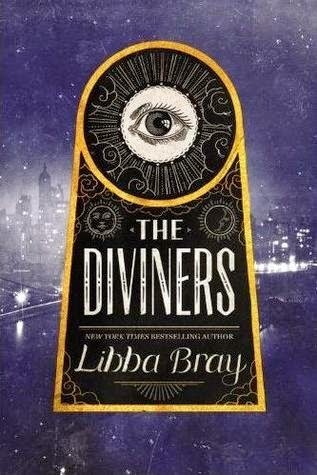
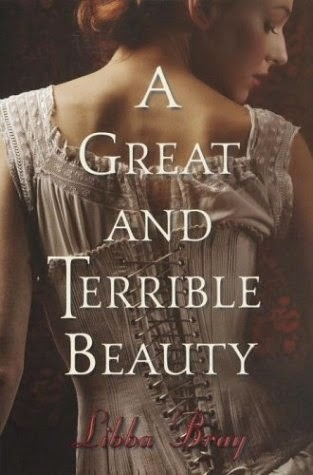
The Diviners by Libba Bray
Seventeen-year-old Evie O'Neill is thrilled when she is exiled from small-town Ohio to New York City in 1926, even when a rash of occult-based murders thrusts Evie and her uncle, curator of The Museum of American Folklore, Superstition, and the Occult, into the thick of the investigation.
A Great and Terrible Beauty (and sequels) by Libba Bray
After the suspicious death of her mother in 1895, sixteen-year-old Gemma returns to England, after many years in India, to attend a finishing school where she becomes aware of her magical powers and ability to see into the spirit world.
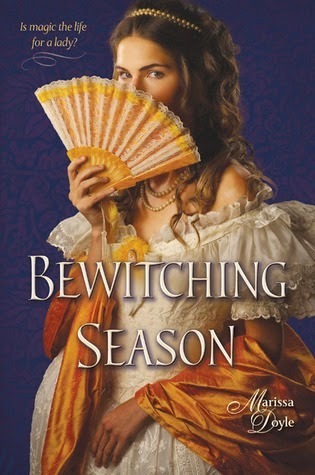
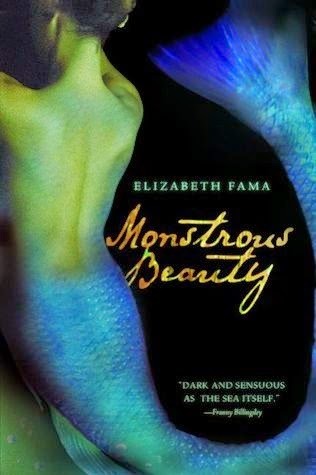
Bewitching Season (and sequels) by Marissa Doyle
In 1837, as seventeen-year-old twins, Persephone and Penelope, are starting their first London Season they find that their beloved governess, who has taught them everything they know about magic, has disappeared.
Monstrous Beauty by Elizabeth Fama
Tells, in alternating chapters, the story of the mermaid Syrenka's love for Ezra in 1872 that leads to a series of horrific murders, and present-day Hester's encounter with a ghost that reveals her connection to the murders and to Syrenka. (Kimberly's review)
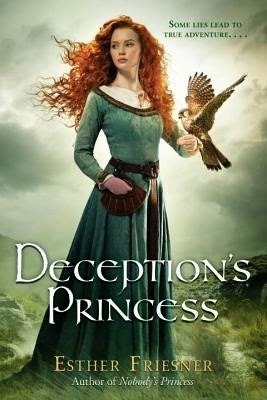
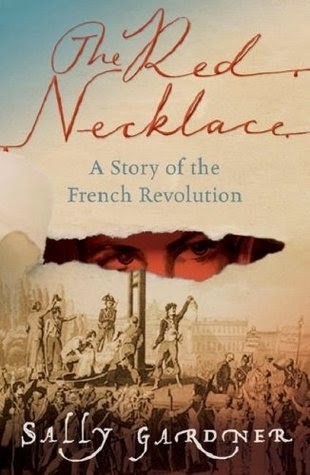
Deception's Princess by Esther M. Friesner
In Iron Age Ireland, Maeve, the fierce, willful youngest daughter of King Eochu of Connacht, is caught in a web of lies after rebelling to avoid fosterage with another highborn family and an arranged marriage.
The Red Necklace by Sally Gardner
In the late eighteenth-century, Sido, the twelve-year-old daughter of a self-indulgent marquis, and Yann, a fourteen-year-old Gypsy orphan raised to perform in a magic show, face a common enemy at the start of the French Revolution.
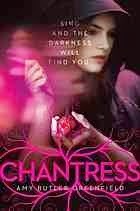
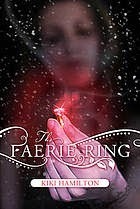
Chantress (and sequel) by Amy Butler Greenfield
Fifteen-year-old Lucy discovers that she is a chantress who can perform magic by singing, and the only one who can save England from the control of the dangerous Lord Protector
The Faerie Ring by Kiki Hamilton
The year is 1871, and Tiki has been making a home for herself and her family of orphans in a deserted hideaway adjoining Charing Cross Station in central London. They survive by picking pockets. One December night, Tiki steals a ring, and sets off a chain of events that could lead to all-out war with the Fey. For the ring belongs to Queen Victoria, and it binds the rulers of England and the realm of Faerie to peace. With the ring missing, a rebel group of faeries hopes to break the treaty with dark magic and blood--Tiki's blood.
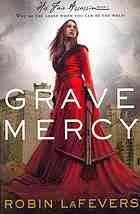
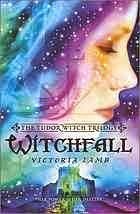
Grave Mercy (and sequels) by Robin LaFevers
In the fifteenth-century kingdom of Brittany, seventeen-year-old Ismae escapes from the brutality of an arranged marriage into the sanctuary of the convent of St. Mortain, where she learns that the god of Death has blessed her with dangerous gifts--and a violent destiny. (Kimberly's review)
Witchfall by Victoria Lamb
In order for magic-wielding Meg to keep the outcast Princess Elizabeth and her secret betrothed, the Spanish priest Alejandro de Castillo, safe in the court of Queen Mary, she needs to make the ultimate sacrifice.
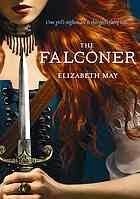
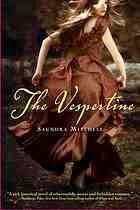
The Falconer by Elizabeth May
In 1844 Edinburgh, eighteen-year-old Lady Aileana Kameron is neither an ordinary debutante, nor a murderess--she is a Falconer, a female warrior born with the gift for hunting and killing the faeries who prey on mankind and who killed her mother. (Kimberly's review)
The Vespertine (and sequels) by Saundra Mitchell
In 1889, when Amelia van den Broek leaves her brother's strict home for the freedom of a social season with cousins in Baltimore, she is surprised by her strong attraction to an unsuitable man, but more so by the dark visions she has each evening which have some believing that she is the cause, not merely the seer, of harm. (Kelly's review)
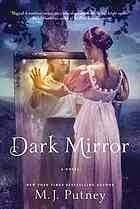
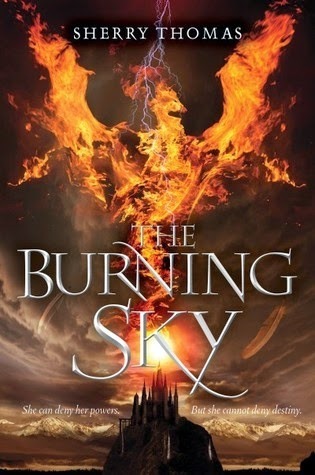
Dark Mirror (and sequels) by M. J. Putney
When it is discovered that Lady Victoria has magic powers, she is sent away to school at Lackland Abbey, where she joins a group of young mages using their powers to protect England, and travels through time from the early 1800s to the 1940s. (Kelly's review)
The Burning Sky (and sequel) by Sherry Thomas
A young elemental mage named Iaolanthe Seabourne discovers her shocking power and destiny when she is thrown together with a deposed prince to lead a rebellion against a tyrant. (Kimberly's review)
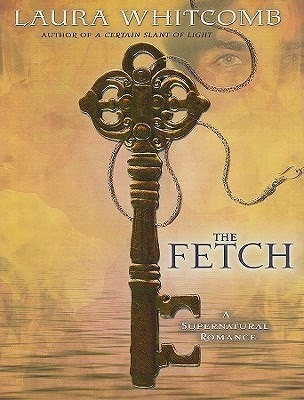
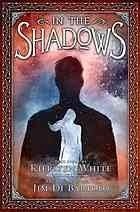
The Fetch by Laura Whitcomb
After 350 years as a Fetch, or death escort, Calder breaks his vows and enters the body of Rasputin, whose spirit causes rebellion in the Land of Lost Souls while Calder struggles to convey Ana and Alexis, orphaned in the Russian Revolution, to Heaven.
In the Shadows by Kiersten White and Jim Di Bartolo
Minnie and Cora, sisters living in a sleepy Maine town in the nineteenth century, are intrigued by Arthur, a mysterious boy with no past who has come to live in their mother's boarding house--but something sinister is stirring and the teens must uncover the truth, and unlock the key to immortality. (Kimberly's review)
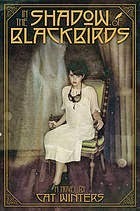
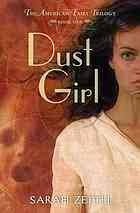
In the Shadow of Blackbirds by Cat Winters
In San Diego in 1918, as deadly influenza and World War I take their toll, sixteen-year-old Mary Shelley Black watches desperate mourners flock to séances and spirit photographers for comfort and, despite her scientific leanings, must consider if ghosts are real when her first love, killed in battle, returns. (Kimberly's review)
Dust Girl (and sequels) by Sarah Zettel
On the day in 1935 when her mother vanishes during the worst dust storm ever recorded in Kansas, Callie learns that she is not actually a human being.






 Related StoriesA Look at YA Horror in 2014What I'm Reading NowCress by Marissa Meyer
Related StoriesA Look at YA Horror in 2014What I'm Reading NowCress by Marissa Meyer
I thought I had a pretty good grasp on the definition of historical fantasy, but in doing a bit of searching, I learned that my definition is different from many others' definitions. Hugo winner Jo Walton gives a good overview at tor.com: What is Historical Fantasy? She (and others) use the term to describe any sort of fantasy that takes place in the past or seems like it might take place in the past - whether that past actually existed or not. I take a much narrower view. For me, historical fantasy is strictly fantasy that takes place in a past that actually existed, not just in a world that seems kind of historical-ish.
So there's some disagreement. I prefer the narrower definition mainly because I find the more expanded definition nearly useless. So much of fantasy is pseudo-medieval, meaning we'd call almost all fantasy "historical fantasy" in that case. Moreover, these stories are quite clearly and deliberately not set in our own world. There's no history to be gleaned from stories like that. Part of the appeal of historical fantasy is seeing the ways the author manipulates actual historical events with fantastical elements. I try to be careful in what I call historical fantasy for this reason, and my definition is the definition I'll be using for this guide. (Read a few of the comments in the Jo Walton piece and you'll see I'm not alone!)
Some well-known examples of historical fantasy that fit my definition well are Jonathan Strange & Mr. Norrell by Susanna Clarke, The Mists of Avalon by Marion Zimmer Bradley, and Outlander by Diana Gabaldon. On the YA end, Libba Bray's A Great and Terrible Beauty and Robin LaFevers Grave Mercy are good examples.
We've covered awards and resources for fantasy and historical fiction before in our genre guides, so I won't rehash them here. I did find a few interesting reads, though. The first is this piece by Dan Wohl at The Mary Sue: Is "Historical Accuracy" a Good Defense of Patriarchal Societies in Fantasy Fiction? Make sure you read the first comment as well, which points out a serious flaw in his argument, though the point he's getting at is valid. If you're a fan of Game of Thrones (tv series or book series), you've likely read defenses of its treatment of women, one of which probably was "But that's the way women were treated back then!" And here's another reason I prefer my definition of historical fantasy: Game of Thrones is not historical fantasy. The entire world is invented. Martin and the screenwriters made a choice to create cultures like this, and "historical accuracy" is not a legitimate reason.
Even for books that are clearly historical fantasy (or based on history, as GoT ostensibly is), if an author makes a choice to write about dragons and fairies in 17th century England, what's stopping that author from making the society gender-equal? We can suspend our disbelief for dragons, but we can't do the same for gender parity, or even female privilege? Falling back on the myth of historical accuracy demonstrates a supreme lack of creativity. The whole point of historical fantasy is to give the readers a historical time period that is accurate to a point - and then goes off the rails. If it weren't historically inaccurate in some way, it wouldn't be historical fantasy. My point is that the author chose to write the story in that way for a reason, and accuracy ain't it. (I read the Ruins of Ambrai by Melanie Rawn as a teenager, which features a society where women hold all power. It's really great high fantasy; not historical, but could easily be made so. Let's see more of this, yes?)
Anyway.
On the YA front, there are a couple of places that review historical fantasy pretty regularly. TeenReads.com has a page devoted to it, as does Charlotte's Library. Some of the titles mentioned don't adhere to my strict definition, but that's inevitable.
Below are a few recently published historical fantasy titles plus some forthcoming ones. I've restricted the list to books that fit my narrow definition of historical fantasy, otherwise it would be much, much longer. I omitted steampunk since we've covered that already. Descriptions are from Worldcat. What ones have I missed? Let me know in the comments.


The Diviners by Libba Bray
Seventeen-year-old Evie O'Neill is thrilled when she is exiled from small-town Ohio to New York City in 1926, even when a rash of occult-based murders thrusts Evie and her uncle, curator of The Museum of American Folklore, Superstition, and the Occult, into the thick of the investigation.
A Great and Terrible Beauty (and sequels) by Libba Bray
After the suspicious death of her mother in 1895, sixteen-year-old Gemma returns to England, after many years in India, to attend a finishing school where she becomes aware of her magical powers and ability to see into the spirit world.


Bewitching Season (and sequels) by Marissa Doyle
In 1837, as seventeen-year-old twins, Persephone and Penelope, are starting their first London Season they find that their beloved governess, who has taught them everything they know about magic, has disappeared.
Monstrous Beauty by Elizabeth Fama
Tells, in alternating chapters, the story of the mermaid Syrenka's love for Ezra in 1872 that leads to a series of horrific murders, and present-day Hester's encounter with a ghost that reveals her connection to the murders and to Syrenka. (Kimberly's review)


Deception's Princess by Esther M. Friesner
In Iron Age Ireland, Maeve, the fierce, willful youngest daughter of King Eochu of Connacht, is caught in a web of lies after rebelling to avoid fosterage with another highborn family and an arranged marriage.
The Red Necklace by Sally Gardner
In the late eighteenth-century, Sido, the twelve-year-old daughter of a self-indulgent marquis, and Yann, a fourteen-year-old Gypsy orphan raised to perform in a magic show, face a common enemy at the start of the French Revolution.


Chantress (and sequel) by Amy Butler Greenfield
Fifteen-year-old Lucy discovers that she is a chantress who can perform magic by singing, and the only one who can save England from the control of the dangerous Lord Protector
The Faerie Ring by Kiki Hamilton
The year is 1871, and Tiki has been making a home for herself and her family of orphans in a deserted hideaway adjoining Charing Cross Station in central London. They survive by picking pockets. One December night, Tiki steals a ring, and sets off a chain of events that could lead to all-out war with the Fey. For the ring belongs to Queen Victoria, and it binds the rulers of England and the realm of Faerie to peace. With the ring missing, a rebel group of faeries hopes to break the treaty with dark magic and blood--Tiki's blood.


Grave Mercy (and sequels) by Robin LaFevers
In the fifteenth-century kingdom of Brittany, seventeen-year-old Ismae escapes from the brutality of an arranged marriage into the sanctuary of the convent of St. Mortain, where she learns that the god of Death has blessed her with dangerous gifts--and a violent destiny. (Kimberly's review)
Witchfall by Victoria Lamb
In order for magic-wielding Meg to keep the outcast Princess Elizabeth and her secret betrothed, the Spanish priest Alejandro de Castillo, safe in the court of Queen Mary, she needs to make the ultimate sacrifice.


The Falconer by Elizabeth May
In 1844 Edinburgh, eighteen-year-old Lady Aileana Kameron is neither an ordinary debutante, nor a murderess--she is a Falconer, a female warrior born with the gift for hunting and killing the faeries who prey on mankind and who killed her mother. (Kimberly's review)
The Vespertine (and sequels) by Saundra Mitchell
In 1889, when Amelia van den Broek leaves her brother's strict home for the freedom of a social season with cousins in Baltimore, she is surprised by her strong attraction to an unsuitable man, but more so by the dark visions she has each evening which have some believing that she is the cause, not merely the seer, of harm. (Kelly's review)


Dark Mirror (and sequels) by M. J. Putney
When it is discovered that Lady Victoria has magic powers, she is sent away to school at Lackland Abbey, where she joins a group of young mages using their powers to protect England, and travels through time from the early 1800s to the 1940s. (Kelly's review)
The Burning Sky (and sequel) by Sherry Thomas
A young elemental mage named Iaolanthe Seabourne discovers her shocking power and destiny when she is thrown together with a deposed prince to lead a rebellion against a tyrant. (Kimberly's review)


The Fetch by Laura Whitcomb
After 350 years as a Fetch, or death escort, Calder breaks his vows and enters the body of Rasputin, whose spirit causes rebellion in the Land of Lost Souls while Calder struggles to convey Ana and Alexis, orphaned in the Russian Revolution, to Heaven.
In the Shadows by Kiersten White and Jim Di Bartolo
Minnie and Cora, sisters living in a sleepy Maine town in the nineteenth century, are intrigued by Arthur, a mysterious boy with no past who has come to live in their mother's boarding house--but something sinister is stirring and the teens must uncover the truth, and unlock the key to immortality. (Kimberly's review)


In the Shadow of Blackbirds by Cat Winters
In San Diego in 1918, as deadly influenza and World War I take their toll, sixteen-year-old Mary Shelley Black watches desperate mourners flock to séances and spirit photographers for comfort and, despite her scientific leanings, must consider if ghosts are real when her first love, killed in battle, returns. (Kimberly's review)
Dust Girl (and sequels) by Sarah Zettel
On the day in 1935 when her mother vanishes during the worst dust storm ever recorded in Kansas, Callie learns that she is not actually a human being.







 Related StoriesA Look at YA Horror in 2014What I'm Reading NowCress by Marissa Meyer
Related StoriesA Look at YA Horror in 2014What I'm Reading NowCress by Marissa Meyer
Published on May 13, 2014 22:00
No comments have been added yet.



